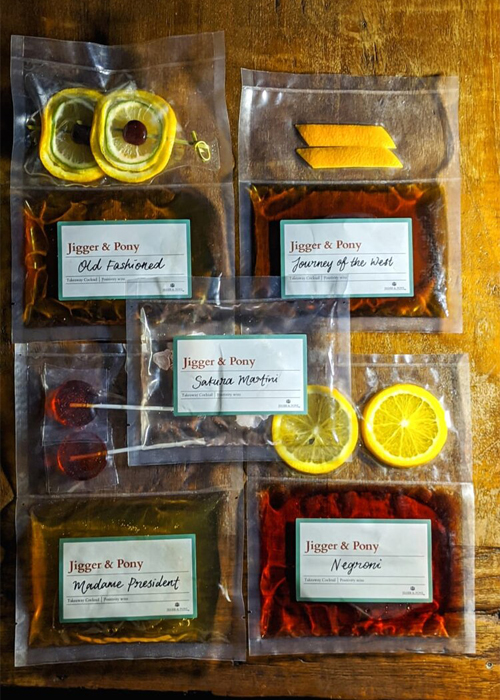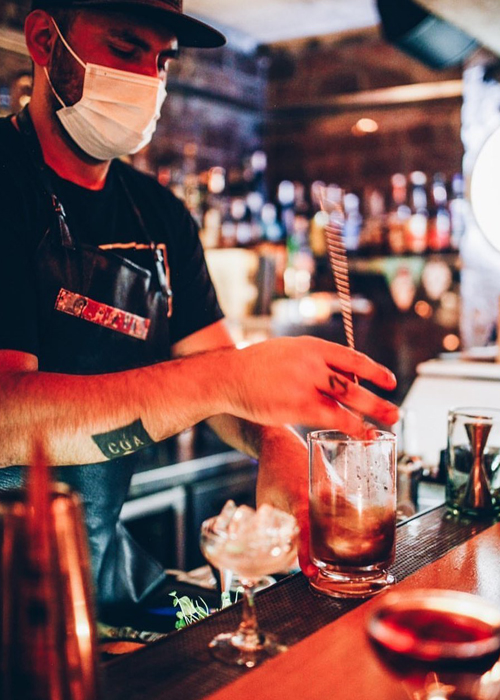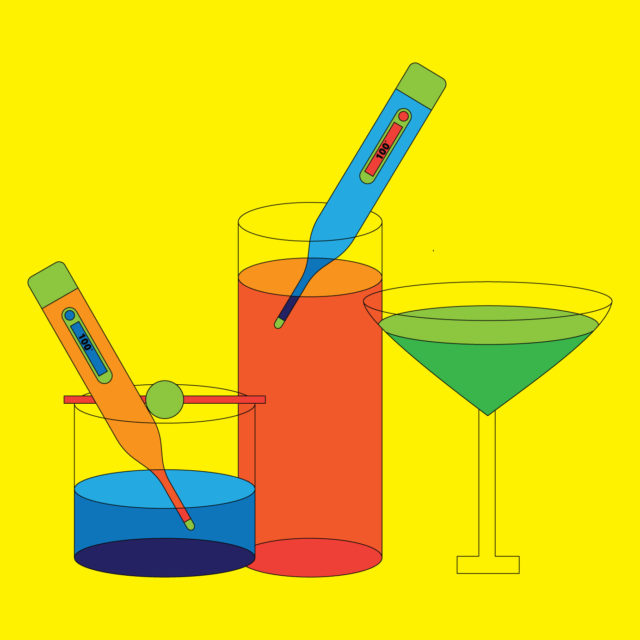As countries around the globe start pushing back the spread of the Covid-19 pandemic, the food and beverage industry is slowly getting back up to speed in parts of Asia, including Hong Kong, Taiwan, Singapore, and China. Bars are shaking up cocktails, and restaurants are filled with the chatter of voices. Yet, now more than ever, operators are aware of the need to be vigilant to prevent the Covid-19 virus from spreading once again.
To set the stage, surviving the pandemic lockdowns wasn’t easy on craft cocktail bars. Even for top bars, such as Singapore’s Jigger & Pony, which was named Asia’s Best Bar in 2020, the team had to pivot quickly to stay afloat amid mandatory closures. Just a week after lockdown began, Jigger & Pony started offering takeaway products, like pre-made cocktails in pouches and bottles, complete with garnishes. It also introduced a Virtual Punch Bowl concept, “where a punch bowl could be split and delivered to up to four addresses in a single delivery, enabling our customers to take the party home,” says Indra Kantono, the bar’s co-founder. Coming out of the pandemic closures, the bar is still offering delivery, with plans to continue for the foreseeable future.
While cocktail lounges across most of the United States are still shuttered, bars in much of Asia are now welcoming guests, albeit in reduced numbers. To understand how these bars are operating safely in a post-lockdown scenario, VinePair reached out to several operators in Asia to glean their insights. From health declaration forms to temperature checks and table spacing, these tactics are allowing bars to keep their doors open.
Health Declarations Forms
At bars in Hong Kong and Taiwan, some check-in processes start before entering the venues. Health declaration forms must be filled out either online or at the door, communicating to the bar staff where guests have been in the last 14 days, whether they have any symptoms of Covid-19, and whether they have come into contact with anyone who has recently travelled.
At the Pontiac bar in Hong Kong, guests must fill the forms out online before arriving. “It’s faster, more efficient, and we found that it’s less invasive for our guests,” says Beckaly Franks, co-owner of the Pontiac. Once filled out, guests use a unique health review QR code to enter the bar.
In Taipei, Nick Wu, owner of Bar Mood and co-founder of the cocktail lounge MU: Taipei, prefers having guests fill out the forms as they arrive. “It’s simple,” Wu says. “But it gives both staff and guests peace of mind, and allows them to enjoy the night responsibly.” Wu and his partners, Bannie Kang (the 2019 Diageo World Class champion) and her husband chef Tryson Quek, opened MU: Taipei just days after the pandemic broke out. Yet, with vigilant procedures in place, Wu says the new venture is thriving.

Temperature Checks and Hand Sanitizers
Temperature control and the use of hand sanitizers are now standard at many bars, though not officially required. At the high-end cocktail bar Union Trading Co. in Shanghai, the bar’s owners require temperature checks for guests upon arrival. High-tech thermometers scan and display their temperature in seconds; if it’s too high, they aren’t allowed to enter. If their temperature is below the accepted limit, guests get a spray of hand sanitizer and are shown to a table.
Only when seated can guests remove their masks. Staff must wear masks at all times, and all surfaces in the bar are sanitized with bleach at the end of every shift.
“Some of our procedures may seem inhospitable,” says Yao Lu, Union Trading Co.’s owner. “But honestly, I think making sure all of our staff and guests are safe is the ultimate form of hospitality.”
-

Credit: COA Hong Kong Table Separation and Capacity Caps
However, the use of health declarations and temperature checks cannot entirely stop the spread of Covid-19, especially in indoor spaces. To further reduce the risk, bars in Hong Kong have been ordered to stay at 50 percent capacity with around five feet of separation between tables, says Jay Khan, co-founder of the craft cocktail lounge COA Hong Kong.
While these measures make profitability unlikely for the foreseeable future, Khan says he’s thankful to be open at all. “We will adhere to whatever we can do to ensure our bar is a safe place to drink,” he says. “We’re just lucky to be operational right now.”
While some government monitoring of operators’ efforts is likely, the success or failure of these procedures will largely come from a collective movement by bars and bartenders to follow the rules, doing their part to prevent Covid-19 from surging again. As these operators recognize, it’s in their best interest to restore confidence among drinks consumers, getting cocktail culture back on track in some of Asia’s most vibrant hubs.
This story is a part of VP Pro, our free platform and newsletter for drinks industry professionals, covering wine, beer, liquor, and beyond. Sign up for VP Pro now!
